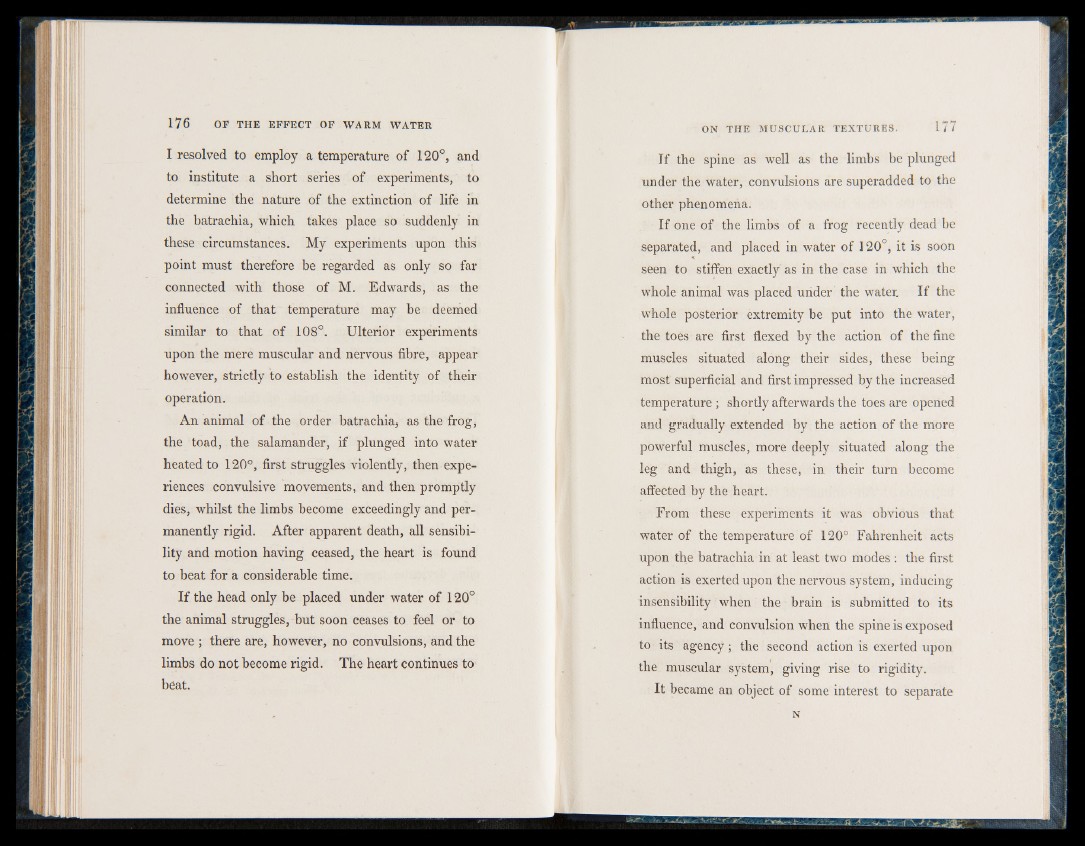
I resolved to employ a temperature of 120°, and
to institute a short series of experiments, to
determine the nature of the extinction of life in
the batrachia, which takes place so suddenly in
these circumstances. My experiments upon this
point must therefore be regarded as only so far
connected with those of M. Edwards, as the
influence of that temperature may be deemed
similar to that of 108°. Ulterior experiments
upon the mere muscular and nervous fibre, appear
however, strictly to establish the identity of their
operation.
An animal of the order batrachia, as the frog,
the toad, the salamander, if plunged into water
heated to 120°, first struggles violently, then experiences
convulsive movements, and then promptly
dies, whilst the limbs become exceedingly and permanently
rigid. After apparent death, all sensibility
and motion having ceased, the heart is found
to beat for a considerable time.
If the head only be placed under water of 120°
the animal struggles, but soon ceases to feel or to
move ; there are, however, no convulsions, and the
limbs do not become rigid. The heart continues to
béat.
If the spine as well as the limbs be plunged
under the water, convulsions are superadded to the
other phenomena.
If one of the limbs of a frog recently dead be
separated, and placed in water of ] 20°, it is soon
seen to stiffen exactly as in the case in which the
whole animal was placed under the water. If the
whole posterior extremity be put into the water,
the toes are first flexed by the action of the fine
muscles situated along their sides, these being
most superficial and first impressed by the increased
temperature; shortly afterwards the toes are opened
and gradually extended by the action of the more
powerful muscles, more deeply situated along the
leg and thigh, as these, in their turn become
affected by the heart.
From these experiments it was obvious that
water of the temperature of 120° Fahrenheit acts
upon the batrachia in at least two modes: the first
action is exerted upon the nervous system, inducing
insensibility when the brain is submitted to its
influence, and convulsion when the spine is exposed
to its agency; the second action is exerted upon
the muscular system, giving rise to rigidity.
It became an object of some interest to separate